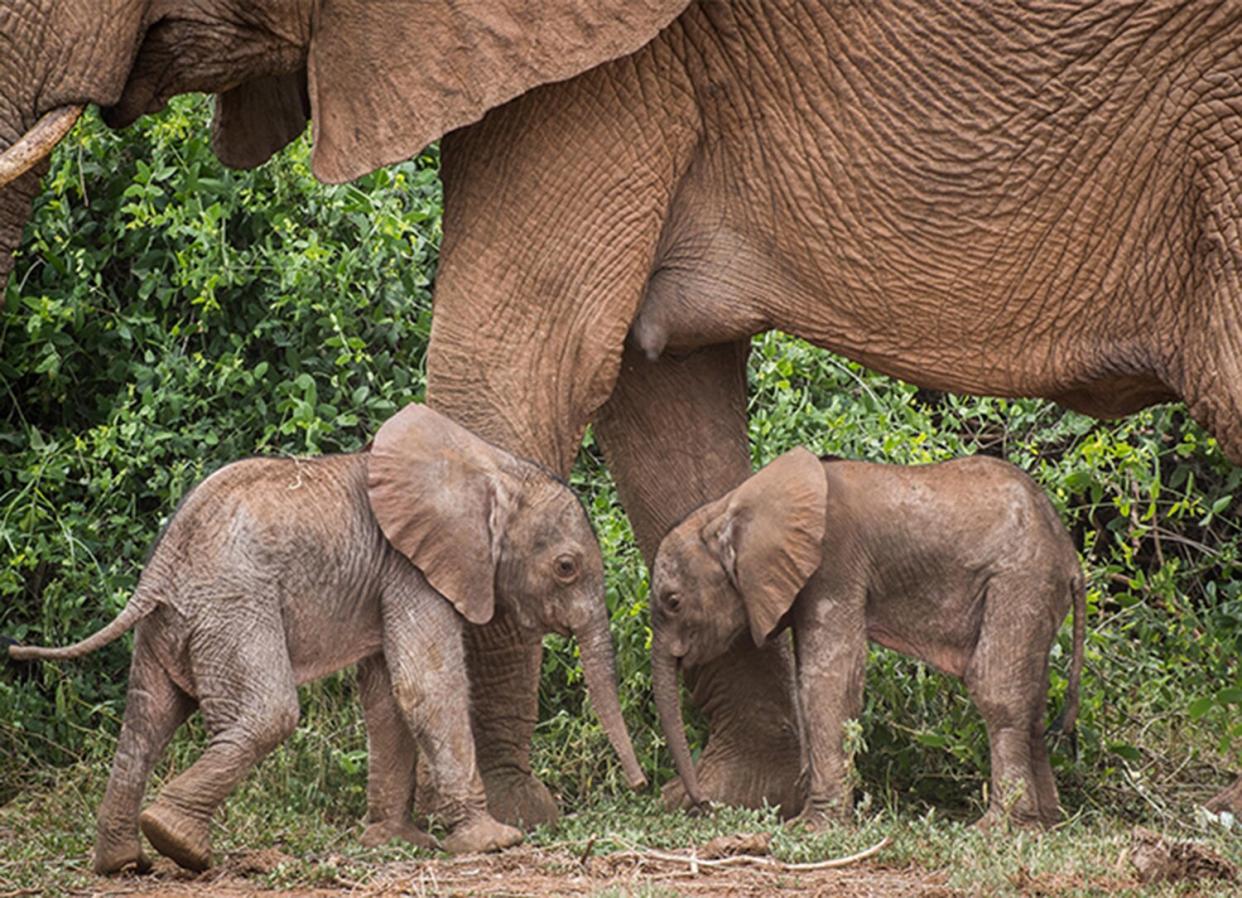Rare Elephant Twins Born in Kenyan Reserve for the First Time in More than 15 Years

Jane Wynyard/ Save the Elephants
The Samburu National Reserve in Northern Kenya is celebrating two new additions.
On Sunday, guides from the park's luxury eco-camp Elephant Watch Camp (EWC) discovered a rare set of male and female elephant twins. The calves, who have not yet been named, were roughly around a day old when found, according to Save the Elephants (STE), the nonprofit that trains EWC guides to distinguish individual elephants and families in the park.
"Twins are rarely encountered in elephant populations — and form around only 1% of births," STE founder Iain Douglas-Hamilton said in a statement. "Quite often the mothers don't have enough milk to support two calves.
RELATED: Elephant Brothers Born at Animal Orphanage Are Sri Lanka's First Elephant Twins in 80 Years
"In fact, the birth of twins has only ever been recorded once before in Samburu in 2006. Sadly both calves died shortly after," Douglas-Hamilton said
"The next few days will be touch and go for the new twins, but we all have our fingers crossed for their survival," he added.
STE researchers will continue to monitor the twins' health as part of their daily routine.
The calves' mother is Bora from the reserve's Winds II family. The twins are her second and third calves after having her first in 2017. Guides also spotted Bora's first calf near the twins on Sunday.
African elephants have the longest gestational period (22 months) of any mammal, giving birth around every four years.
RELATED VIDEO: Albino Elephant Calf Rescued From Poacher's Snare in South Africa
Douglas-Hamilton founded STE in 1993, to "secure a future for elephants and sustain the beauty and ecological integrity of the places they live, to promote man's delight in their intelligence and the diversity of their world, and to develop a tolerant relationship between the two species."
As of 2020, Kenya's elephant population has more than doubled (from 16,000 to 34,800) since 1989, according to the Kenya Wildlife Service. Amboseli National Park welcomed two sets of elephant twins in 2020, NPR reported.

 Yahoo Movies
Yahoo Movies 
